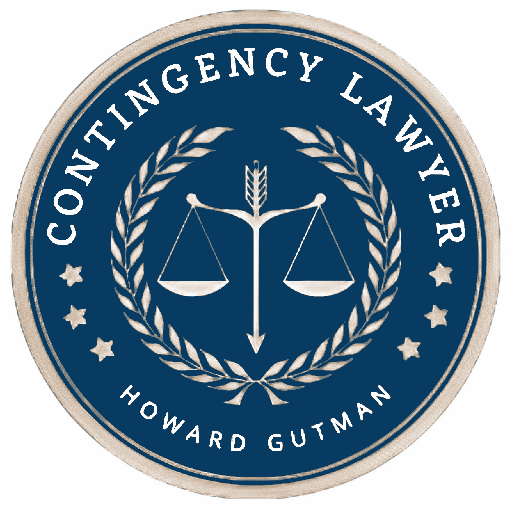Conscientious Employee Protection Act (CEPA)
Free Consultation on Your Whistleblower Claim
34:19-2. Definitions
As used in this act:
a. “Employer” means any individual, partnership, association, corporation or any person or group of persons acting directly or indirectly on behalf of or in the interest of an employer with the employer’s consent and shall include all branches of State Government, or the several counties and municipalities thereof, or any other political subdivision of the State, or a school district, or any special district, or any authority, commission, or board or any other agency or instrumentality thereof.
b. “Employee” means any individual who performs services for and under the control and direction of an employer for wages or other remuneration.
c. “Public body” means:
(1) the United States Congress, and State legislature, or any popularly-elected local governmental body, or any member or employee thereof;
(2) any federal, State, or local judiciary, or any member or employee thereof, or any grand or petit jury;
(3) any federal, State, or local regulatory, administrative, or public agency or authority, or instrumentality thereof;
(4) any federal, State, or local law enforcement agency, prosecutorial office, or police or peace officer;
(5) any federal, State or local department of an executive branch of government; or
(6) any division, board, bureau, office, committee or commission of any of the public bodies described in the above paragraphs of this subsection.
d. “Supervisor” means any individual with an employer’s organization who has the authority to direct and control the work performance of the affected employee, who has authority to take corrective action regarding the violation of the law, rule or regulation of which the employee complains, or who has been designated by the employer on the notice required under section 7 of this act. [FN1]
e. “Retaliatory action” means the discharge, suspension or demotion of an employee, or other adverse employment action taken against an employee in the terms and conditions of employment.
f. “Improper quality of patient care” means, with respect to patient care, any practice, procedure, action or failure to act of an employer that is a health care provider which violates any law or any rule, regulation or declaratory ruling adopted pursuant to law, or any professional code of ethics.
34:19-3. Retaliatory action prohibited
An employer shall not take any retaliatory action against an employee because the employee does any of the following:
a. Discloses, or threatens to disclose to a supervisor or to a public body an activity, policy or practice of the employer, or another employer, with whom there is a business relationship, that the employee reasonably believes:
(1) is in violation of a law, or a rule or regulation promulgated pursuant to law, including any violation involving deception of, or misrepresentation to, any shareholder, investor, client, patient, customer, employee, former employee, retiree or pensioner of the employer or any governmental entity, or, in the case of an employee who is a licensed or certified health care professional, reasonably believes constitutes improper quality of patient care; or
(2) is fraudulent or criminal, including any activity, policy or practice of deception or misrepresentation which the employee reasonably believes may defraud any shareholder, investor, client, patient, customer, employee, former employee, retiree or pensioner of the employer or any governmental entity;
b. Provides information to, or testifies before, any public body conducting an investigation, hearing or inquiry into any violation of law, or a rule or regulation promulgated pursuant to law by the employer, or another employer, with whom there is a business relationship, including any violation involving deception of, or misrepresentation to, any shareholder, investor, client, patient, customer, employee, former employee, retiree or pensioner of the employer or any governmental entity, or, in the case of an employee who is a licensed or certified health care professional, provides information to, or testifies before, any public body conducting an investigation, hearing or inquiry into the quality of patient care; or
c. Objects to, or refuses to participate in any activity, policy or practice which the employee reasonably believes:
(1) is in violation of a law, or a rule or regulation promulgated pursuant to law, including any violation involving deception of, or misrepresentation to, any shareholder, investor, client, patient, customer, employee, former employee, retiree or pensioner of the employer or any governmental entity, or, if the employee is a licensed or certified health care professional, constitutes improper quality of patient care;
(2) is fraudulent or criminal, including any activity, policy or practice of deception or misrepresentation which the employee reasonably believes may defraud any shareholder, investor, client, patient, customer, employee, former employee, retiree or pensioner of the employer or any governmental entity; or (3) is incompatible with a clear mandate of public policy concerning the public health, safety or welfare or protection of the environment.
34:19-4. Written notice required
The protection against retaliatory action provided by this act pertaining to disclosure to a public body shall not apply to an employee who makes a disclosure to a public body unless the employee has brought the activity, policy or practice in violation of a law, or a rule or regulation promulgated pursuant to law to the attention of a supervisor of the employee by written notice and has afforded the employer a reasonable opportunity to correct the activity, policy or practice. Disclosure shall not be required where the employee is reasonably certain that the activity, policy or practice is known to one or more supervisors of the employer or where the employee reasonably fears physical harm as a result of the disclosure provided, however, that the situation is emergency in nature.
34:19-5. Civil action, jury trial; remedies
Upon a violation of any of the provisions of this act, an aggrieved employee or former employee may, within one year, institute a civil action in a court of competent jurisdiction. Upon the application of any party, a jury trial shall be directed to try the validity of any claim under this act specified in the suit. All remedies available in common law tort actions shall be available to prevailing plaintiffs. These remedies are in addition to any legal or equitable relief provided by this act or any other statute. The court shall also order, where appropriate and to the fullest extent possible:
a. An injunction to restrain any violation of this act which is continuing at the time that the court issues its order;
b. The reinstatement of the employee to the same position held before the retaliatory action, or to an equivalent position;
c. The reinstatement of full fringe benefits and seniority rights;
d. The compensation for all lost wages, benefits and other remuneration; and
e. The payment by the employer of reasonable costs, and attorney’s fees.
In addition, the court or jury may order: the assessment of a civil fine of not more than $10,000 for the first violation of the act and not more than $20,000 for each subsequent violation, which shall be paid to the State Treasurer for deposit in the General Fund; punitive damages; or both a civil fine and punitive damages. In determining the amount of punitive damages, the court or jury shall consider not only the amount of compensatory damages awarded to the employee, but also the amount of all damages caused to shareholders, investors, clients, patients, customers, employees, former employees, retirees or pensioners of the employer, or to the public or any governmental entity, by the activities, policies or practices of the employer which the employee disclosed, threatened to disclose, provided testimony regarding, objected to, or refused to participate in.
34:19-6. Fees, costs to employer
A court, upon notice of motion in accordance with the Rules Governing the Courts of the State of New Jersey, may also order that reasonable attorneys’ fees and court costs be awarded to an employer if the court determines that an action brought by an employee under this act was without basis in law or in fact. However, an employee shall not be assessed attorneys’ fees under this section if, after exercising reasonable and diligent efforts after filing a suit, the employee files a voluntary dismissal concerning the employer, within a reasonable time after determining that the employer would not be found to be liable for damages.
34:19-7. Posting of notices
An employer shall conspicuously display, and annually distribute to all employees, written or electronic notices of its employees’ protections, obligations, rights and procedures under this act, and use other appropriate means to keep its employees so informed. Each notice posted or distributed pursuant to this section shall be in English, Spanish and at the employer’s discretion, any other language spoken by the majority of the employer’s employees. The notice shall include the name of the person or persons the employer has designated to receive written notifications pursuant to section 4 of this act. The Commissioner of Labor and Workforce Development shall make available to employers a text of a notice fulfilling the requirements of this section and provide copies of the notice suitable for display and distribution to any employers who request the copies, charging them as much as is needed to pay the costs of the department. The commissioner shall also provide notices printed in a language other than English and Spanish, at the request of the employer.
The requirement that an employer annually distribute to all employees written notices of the protections, obligations, rights and procedures provided to the employees by the provisions of P.L. 1986, c.105 (C.34:19-1 et seq.) shall not apply to any employer who has less than 10 employees.
34:19-8. Other rights, remedies unaffected
Nothing in this act shall be deemed to diminish the rights, privileges, or remedies of any employee under any other federal or State law or regulation or under any collective bargaining agreement or employment contract; except that the institution of an action in accordance with this act shall be deemed a waiver of the rights and remedies available under any other contract, collective bargaining agreement, State law, rule or regulation or under the common law.
Selected Cases and Sources on Whistleblower Claims
- 104 ALR 5th 1, Common-Law Retaliatory Discharge Of Employee For Refusing To Perform Or Participate In Unlawful Or
- Wrongful Acts.
- 52 ALR 5th 405, Wrongful Discharge Based On Public Policy Derived From Professional Ethics Codes.
- Employment Discrimination Coordinator ¶ 97,017.5, ¶ 97,017.5. Retaliation Against Whistle.
- 18 N.J. Prac. Series § 5.1, Scope.
- 18 N.J. Prac. Series § 5.2, Protection For Disclosure Of Employer Conduct.
- 18 N.J. Prac. Series § 5.3, Protection For Testifying Or Giving Information To A Public Body.
- 18 N.J. Prac. Series § 5.4, Protection For Objecting To Or Refusing To Participate In Illegal Conduct.
- 35 N.J. Prac. Series § 12.20, The “Whistleblower” Statute.
- 39 N.J. Prac. Series § 32.1, Discrimination-Generally.
To determine whether a plaintiff has presented a viable Conscientious Employee Protection Act (CEPA) claim, a trial court must first find and enunciate the specific terms of a statute or regulation, or the clear expression of public policy, which would be violated if the facts as alleged are true. Smith-Bozarth v. Coalition Against Rape and Abuse, Inc., 329 N.J.Super. 238, 747 A.2d 322 (App. Div.2000).
Conscientious Employee Protection Act (CEPA) was designed to provide broad protections against employer retaliation for employees acting in the public interest, and as remedial legislation it should be construed liberally to effectuate its important social goal. Dzwonar v. McDevitt, 348 N.J.Super. 164, 791 A.2d 1020 (App. Div. 2002).
FREE INITIAL CONSULTATION
We offer a free initial telephone consultation to discuss your claim. Please feel free to call or e-mail our office.







Leave a Reply
You must be logged in to post a comment.